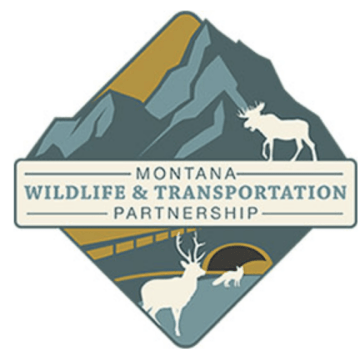Innovative Program Launched to Reduce Wildlife-Vehicle Conflicts
Montana Wildlife & Transportation Partnership Addressing Growing Concerns Through Program
A new planning tool was announced Wednesday by the Montana Wildlife and Transportation Partnership (MWTP or Partnership), aimed to help local groups identify areas of greatest need for decreasing wildlife-vehicle collisions (WVCs) and improving wildlife movement across our state highways.
The Montana Wildlife and Transportation Partnership is a collaborative group of representatives from the Montana Department of Transportation (MDT), Montana Fish, Wildlife & Parks (FWP), and Montanans for Safe Wildlife Passage (MSWP). Formed in 2019, the Partnership recognized that reducing WVCs means finding ways to accommodate wildlife movement across highways. As a result, the Partnership developed a statewide project application process for the public to propose collaborative, stand-alone wildlife accommodation projects within the state’s highway infrastructure.
“Montanans care deeply about protecting our natural resources and keeping one another safe,” MDT Director, Malcolm Long, said. “After years of planning, MWTP celebrates a new opportunity to further public-private partnerships that reduce wildlife and transportation conflicts and improve wildlife connectivity in Montana.”
Without action, this problem isn’t going away. Montana has one of the nation's highest incidences of wildlife-vehicle collisions per capita. Each year, MDT maintenance crews collect more than 6,000 wildlife animal carcasses, and more than 10 percent of all crashes in Montana result from wildlife collisions. Nationally, WVCs kill more than one million large mammals, cause hundreds of human fatalities, and lead to more than 26,000 injuries, all at an annual cost of nearly $11 billion nationwide.
"The best solutions for wildlife vehicle conflicts are found at the local level with all the stakeholders engaged," said FWP Director Hank Worsech. "This tool provides the kind of information needed for those solutions to come forward."
To draw out these solutions, the Planning Tool can identify one- to two-mile state highway segments that may be candidates for wildlife accommodation projects upon further analysis. It has been built on various data sources that have been compiled, weighed, and ranked, representing five key criteria for identifying areas of need across the state.
The Planning Tool supports the larger Project Program, which addresses the need for transportation projects dedicated to accommodating wildlife with the collaborative engagement of stakeholders, including leveraging capacity and capital investment.
Collaboration will be essential to focus public-private resources as groups prepare applications for the Project Program. The first application cycle will be open from May 1 to May 31. Readying projects for application will require coordination, time, and investment, which is why the tool and Project Program guidance documents are being launched three months prior to ensure those interested have ample opportunities to review resources before applying.
The next application cycle is expected to be open from Nov. 1 to Nov. 30. MWTP will have one or two application cycles per year for the foreseeable future. Once an application is received, the MWTP will evaluate project proposals and select stand-alone wildlife accommodation projects that reduce WVCs and improve safe wildlife passage across Montana highways. The MWTP will then support selected applicants through the study and potential development phases.
The MWTP expects proposed projects to demonstrate collaboration between landowners, the public, non-profit and non-governmental organizations, sporting groups, philanthropic interests, public agencies, local governments, community groups, and/or Tribal governments.
The project selection process integrates information from the Planning Tool with other evaluation criteria and considerations, such as community support, surrounding land use, and engineering feasibility, to rate project proposals.
To demonstrate the tool and explain more about the application process, members of the MWTP will host a live webinar in mid-April. The exact date will be determined in the coming weeks. Those interested in attending can visit the project webpage, https://www.mdt.mt.gov/pubinvolve/mwt/, to learn more about the Partnership, the Planning Tool, and the Project Program, and be directed to the upcoming webinar.